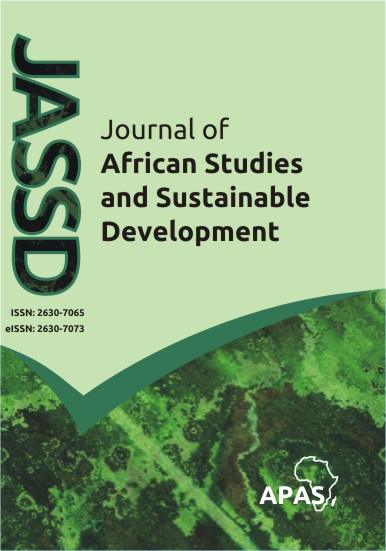 Journal of African Studies and Sustainable Development (JASSD) (Vol. 6 No. 3, 2023)
THE CONCEPT OF SLAVERY IN PAUL'S LETTER TO PHILEMON AND THE
IMPLICATIONS TO HUMAN TRAFFICKING IN NIGERIA
Journal of African Studies and Sustainable Development (JASSD) (Vol. 6 No. 3, 2023)
THE CONCEPT OF SLAVERY IN PAUL'S LETTER TO PHILEMON AND THE
IMPLICATIONS TO HUMAN TRAFFICKING IN NIGERIA
ABSTRACT
Human trafficking is the trade in humans for the purpose of commercial sex work, forced labour, organ harvesting and extraction of tissues. It is a form of modern day slavery. It was allowed in Paulís time in the case of Onesimus and Philemon (Philemon 1). Human trafficking which is modern slavery has become a very lucrative business in Nigeria. Cases of abduction, kidnapping and trafficking in persons make headlines in newspapers on weekly basis. It has been difficult to bring this menace to a halt because of the national and international connections between the human traffickers. Degenerating economic situation in the country have worsened the living conditions of people and thereby leading youths into this inhuman and satanic business. Victims are exploited and many lives have been lost while perpetrators make massive gains. This paper discovered that unlike in biblical times when slavery was allowed, slave trading has been abolished in Nigeria and human trafficking is a crime. Therefore anyone caught in the act of slave trade or human trafficking is committing a grievous offense liable to capital punishment. Human trafficking is violation of a personís right. Paul in his letter to Philemon pleaded with Philemon to accept his runaway servant (Onesimus) not as a slave anymore but as a brother who is profitable to him. No good person will treat his brother wickedly. This paper therefore recommends that human traffickers should desist from this crime against humanity. Severe punishments should be meted on anyone caught in the act of human trafficking.

